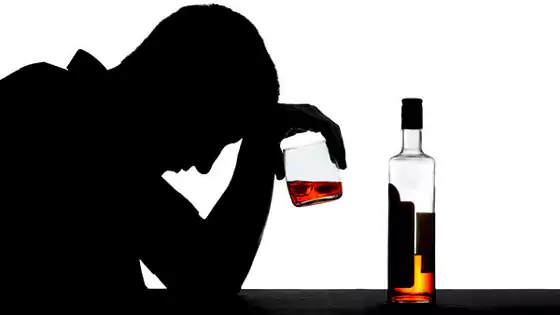
Are You An Alcoholic? – Only You Can Decide!
If you repeatedly drink more than you intend or want to, if you get into trouble, or if you have memory lapses when you drink, you may be an alcoholic. Only you can decide. No one in A.A. will tell you whether you are or not.
Alcoholism and Alcohol Abuse
It’s not always easy to see when your drinking has crossed the line from moderate or social use to problem drinking. But if you consume alcohol to cope with difficulties or to avoid feeling bad, you’re in potentially dangerous territory. Alcoholism and alcohol abuse can sneak up on you, so it’s important to be aware of the warning signs and take steps to cut back if you recognize them. Understanding the problem is the first step to overcoming it.
You Are Not Alone.
Alcohol does not discriminate. We have young and old, men and women, and all varieties of ethnic and religious affiliations. Many of our members are not religious at all. But together we have found a way to stay sober, to support one another, and to regain our once productive and healthy lives. The solution we have found in A.A. is one of hope and strength through fellowship.
10 Warning Signs Of Possible Alcoholism
- Close friends, relatives or colleagues express concerns about drinking habits. An external viewpoint can often be far clearer than self-reflection. An alcohol addict will often find excuses for their drinking whereas their loved ones see it clearly.
- Cravings for a drink affects mood or concentration levels. Feeling distracted and craving alcohol is a sign that your body is becoming dependent on alcohol and now needs it to stave off physical ‘withdrawal’ symptoms.
- “Self-medicating” with drink because of problems at home, social or work life. Using alcohol as a coping mechanism can lead to a person drinking more and more because it only offers temporary relief. In the long run this makes things worse.
- Trying and failing to cut down on the amount of alcohol being consumed. If you cannot stop drinking, this is a sign of a problem. By displaying an inability to cut down or stop drinking alcohol a person is showing strong signs of dependence.
- Lying about or covering up drinking levels. Secretive or dishonest behavior in relation to drinking highlights that a person knows that they’re drinking too much, and feels the need to hide it from others.
- Weight loss and change to physical appearance. Heavy drinking can result in physical deterioration, and also in a person’s attitude to their appearance, caring less about it.
- Drinking to the point of passing out. A common feature of the ‘binge drinking’ culture, black outs are indicative of such a large amount of alcohol that it affects brain function and this is also what affects a person’s memory. Being unable to remember large periods because of too much alcohol indicates you’re drinking too much.
- Having an alcoholic drink first thing in the morning. By having an ‘eye opener’ in the morning, a person is slipping into a routine in which they need alcohol simply to start the day. There is also added risk of being unfit to drive a car, as this “hair-of-the-dog” process will likely push a person over the legal limit.
- Finances are affected by the amount of money spent on alcohol. Often, a person begins to suffer from financial difficulties because of alcohol.
- Drinking habits beginning to cause problems at home, socially or in work. Frequent small accidents or mistakes can begin to creep in, whether it’s errors in work or missed appointments.
For more information on whether you might be an alcoholic, take this quick and easy 12 question test.